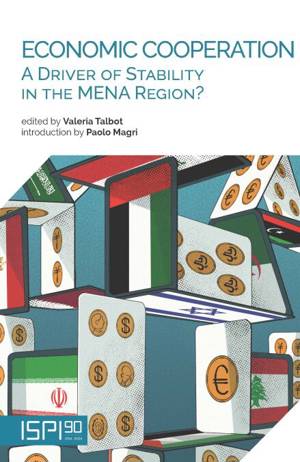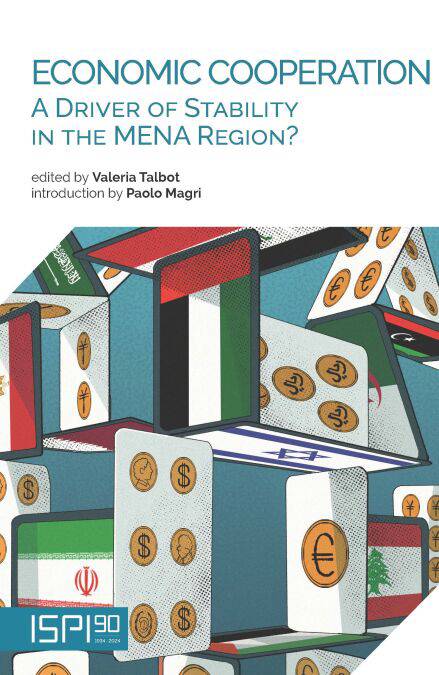
- Afhalen na 1 uur in een winkel met voorraad
- Gratis thuislevering in België vanaf € 30
- Ruim aanbod met 7 miljoen producten
- Afhalen na 1 uur in een winkel met voorraad
- Gratis thuislevering in België vanaf € 30
- Ruim aanbod met 7 miljoen producten
Zoeken
Economic Cooperation: A Driver of Stability in the MENA Region? E-BOOK
Valeria Talbot
E-book | Engels
€ 6,99
+ 6 punten
Omschrijving
The Middle East and North Africa (MENA) region faces a complex landscape where economic cooperation is increasingly linked to regional stability. For decades, economic factors have influenced the foreign policy of MENA countries. However, since 2020, shared economic challenges – exacerbated by the COVID-19 pandemic, oil market fluctuations and the global repercussions of Russia's invasion of Ukraine – have spurred initiatives for diplomatic rapprochement. The October 7 attacks and subsequent Gaza and Lebanon conflicts pose a threat to such progresses.
Can economic partnerships serve as a basis for lasting peace in MENA region? What forms of collaboration could enhance stability in the face of persistent security challenges? What are the primary constraints and challenges that limit the potential of economic cooperation as a stabilising force in the MENA region?
Can economic partnerships serve as a basis for lasting peace in MENA region? What forms of collaboration could enhance stability in the face of persistent security challenges? What are the primary constraints and challenges that limit the potential of economic cooperation as a stabilising force in the MENA region?
Specificaties
Betrokkenen
- Auteur(s):
- Uitgeverij:
Inhoud
- Aantal bladzijden:
- 122
- Taal:
- Engels
Eigenschappen
- Productcode (EAN):
- 9791256002986
- Verschijningsdatum:
- 9/02/2025
- Uitvoering:
- E-book
- Beveiligd met:
- Digital watermarking
- Formaat:
- ePub

Alleen bij Standaard Boekhandel
+ 6 punten op je klantenkaart van Standaard Boekhandel
Beoordelingen
We publiceren alleen reviews die voldoen aan de voorwaarden voor reviews. Bekijk onze voorwaarden voor reviews.







